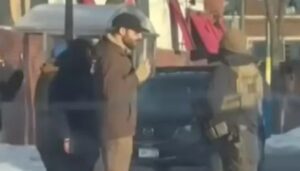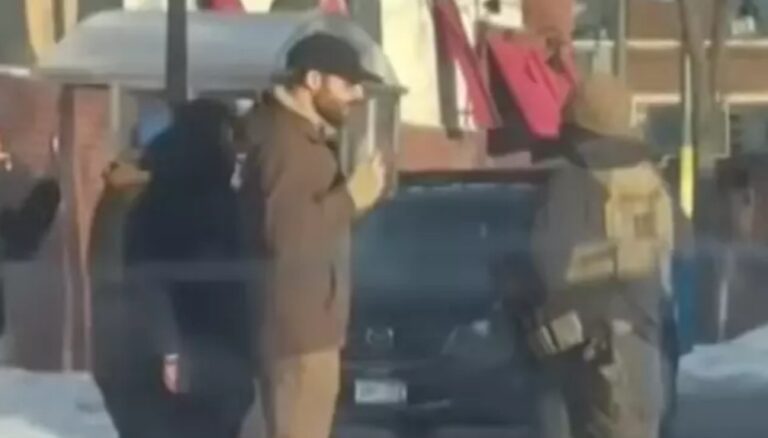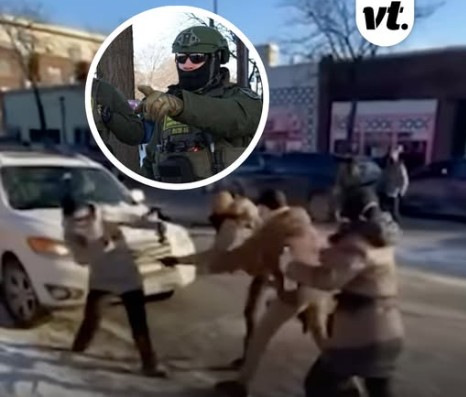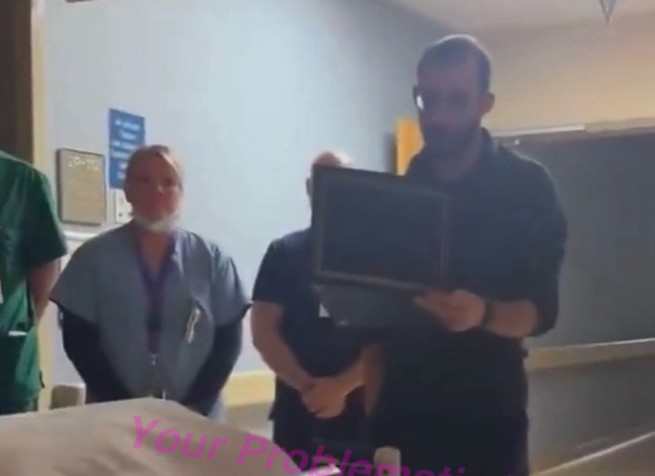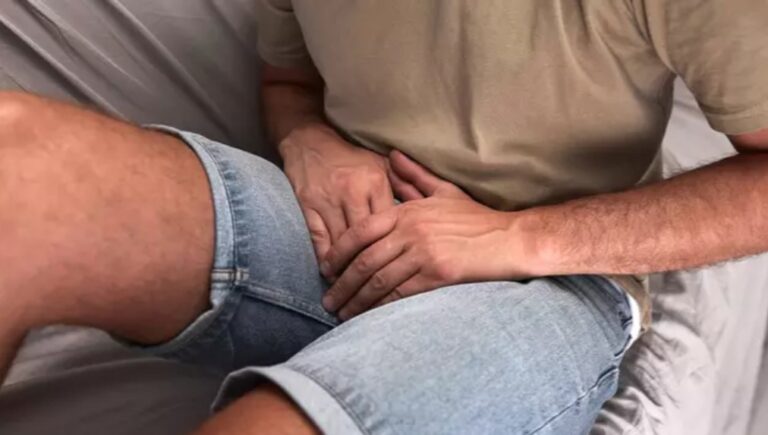The wheels of the train car tapped out the rhythm of my long-dreamed happiness. For three months, I had been saving for this vacation, three months dreaming of the sea, of salty sprays on my skin and sunsets unblocked by city high-rises. For now, the compartment was empty, and I relished this rare luxury — to be alone with my thoughts and dreams.
I carefully laid out my supplies on the little table: homemade cutlets wrapped in foil, a jar of pickles, sliced sandwiches with sausage, apples, cookies, and a thermos of strong tea. It was supposed to last me the whole long trip to the sea. I imagined myself eating slowly while watching the passing landscapes, reading a book, and sipping tea from my favorite cup.
The train slowed as it approached the next station. I didn’t even pay attention to the noise in the corridor — why should I, when the sea and two weeks of blissful idleness lay ahead?
But fate decided to add its own twist to my plans.
Into the compartment bustled a family: a short man with messy hair and a beer belly, his wife — a hefty woman with a loud voice — and their son, about ten, just as stocky as his mother. They noisily settled in, shouting to each other and tossing their things around.
“Finally!” the woman boomed, flopping onto the lower bunk. “Thought my legs would fall off dragging those suitcases!”
“What did you expect, Lyudka?” the man snapped. “You insisted on hauling so much junk!”
“That’s not junk, those are necessities!” she shot back indignantly.
The boy climbed onto his bunk in silence and immediately started noisily munching chips.
I tried to stay cheerful. After all, they were also going on vacation, they had the right to be emotional. Maybe they’d calm down and we’d somehow get along.
But my hopes vanished within half an hour.
“Oh, what tasty things do you have here?” Lyuda’s greedy eyes locked on my table. “We brought some food too, look!”
She pulled out two boiled eggs and a wilted cucumber, plopped them onto the table beside my neatly packed provisions.
“Onto the common table!” she announced solemnly, as if doing me a great favor.
Something tensed inside me, but I still hoped things would pass peacefully.
In vain.
The man, who introduced himself as Vadim, unwrapped my cutlets without hesitation and bit into one.
“Wow, homemade!” he mumbled with his mouth full. “You cook well!”
“Vadim, let me try too!” Lyuda stretched out her hand.
“Excuse me,” I tried to stop them, “but this is my food. I prepared it for myself for the whole trip.”
They looked at me as if I’d said something outrageous.
“Oh, come on!” Lyuda bristled. “How can you say that? You put food on the table! If it’s on the table, it means you’re sharing with your fellow travelers. That’s basic courtesy!”
“We pulled out our food too,” Vadim added, pointing to the pathetic eggs. “Help yourself, don’t be shy!”
Meanwhile, the boy had shoved his dirty hand into my jar of pickles.
“Tasty!” he commented, chewing.
A wave of outrage and helplessness washed over me. These people were brazenly devouring my food, hiding behind some made-up train etiquette rules. And the worst part was their attitude — as if I should be thanking them for the “honor.”
“Listen,” I tried to keep my voice firm, “I didn’t invite anyone. This is my food, and I planned it for the whole trip.”
“Oh, stop it!” Lyuda waved me off, slapping my cutlet on bread for herself. “Don’t be stingy! Can’t you see we hardly have any food of our own? We’re not forcing you to eat only our things!”
Vadim was already finishing off my sandwiches, and the boy licked his fingers as he dug out the last pickles.
They ate with such audacity that I felt tears of insult rising to my throat. Not from losing food — but from being powerless in the face of their rudeness.
“You know what,” I said, my voice trembling, “I need to step out to the corridor.”
“Go ahead,” Lyuda granted generously, still chewing my food. “We’ll take care of the table.”
I left and finally let myself break down. Tears rolled down my cheeks — not because I had nothing left to eat, but because of the humiliation. I stared at the fields flashing by and couldn’t understand how people could be so brazen.
Two emotions tore me apart: rage at them and anger at myself — for not being able to stand up.
“Excuse me, but are you crying?”
I turned. A tall young man stood beside me, broad-shouldered, with kind eyes.
“I’m fine,” I tried to wave him off.
“Doesn’t look like it,” he said gently. “I’m Oleksiy. What’s your name?”
“Svitlana,” I answered, surprised my voice didn’t shake.
“Svitlana, sometimes it helps to tell a stranger. What happened?”
Something in his kindness broke my defenses. I told him everything — about my long-awaited vacation, my carefully prepared food, and the rude family who devoured it all.
Oleksiy listened attentively. When I finished, his face grew serious.
“Got it,” he said. “Which compartment are you in?”
“Seventh,” I replied.
“Wait here a moment,” he said, and went to my compartment.
Muted voices came from inside — Lyuda shouting, Vadim growling, then silence, broken only by Oleksiy’s calm, steady voice.
After a while he returned, looking serene, but with a glint of satisfaction in his eyes.
“I think they’ll behave better now,” he said.
“What did you tell them?” I asked, burning with curiosity.
“Nothing special. Just explained some rules of conduct on the train.”
When I returned, the transformation was complete. My compartment mates sat quietly, the boy glued to his phone, the parents whispering and glancing at me guiltily.
“Svitlanka,” Vadim began awkwardly, “please forgive us. We didn’t know you weren’t alone.”
“Of course not,” Lyuda chimed in. “If we’d known your boyfriend was here too, we’d never have touched your food!”
I blinked. Boyfriend? What? But their guilty faces told me whatever Oleksiy had said, it worked.
At the next stop, they even ran out and came back with bags of food — hot pies, fruit, even a bottle of kvass.
“This is our apology,” Lyuda mumbled. “For you and your boyfriend.”
The rest of the day passed in peace.
Later, I found Oleksiy again in the corridor.
“Thank you,” I said sincerely. “But what exactly did you tell them?”
He smiled mysteriously.
“Well, I might have lied a little. I introduced myself as your companion and mentioned my profession. Told them that stealing, even food on a train, is a crime. And that as a law enforcement officer, I could file a report right there.”
My mouth fell open.
“You mean… are you really in the police?”
“That,” he grinned, “I won’t tell you yet. A little mystery never hurts. But the result speaks for itself, doesn’t it?”
I looked at this extraordinary man who had so easily solved my problem, and felt warmth spread through me.
“How can I thank you?” I asked.
“No thanks needed,” he said seriously. “Just agree to have dinner with me when we arrive. I know a wonderful place by the sea.”
My heart skipped a beat.
“All right,” I said. “But only if you promise to tell me the truth about yourself.”
“Deal,” he smiled. “Over dinner, I’ll tell you everything. More than you expect.”
The wheels kept beating their rhythm — now the rhythm of not just a vacation, but a new story beginning right there on the train.


